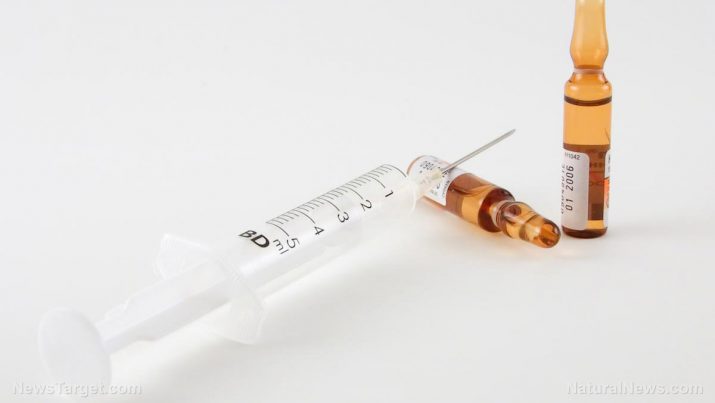
Flu viral strain found to actually CURE liver cancer in groundbreaking research that obliterates medical narratives of the status quo
Tuesday, July 25, 2017 by Isabelle Z.
http://www.immunization.news/2017-07-25-flu-viral-strain-found-to-actually-cure-liver-cancer.html

You don’t have be in favor of vaccines to appreciate the value of viral therapy in certain cases, and a new trial that could give hope to people with deadly liver cancer is one very promising example of this approach.
Scientists are getting ready to test a revolutionary treatment that will entail injecting patients who have advanced liver cancer with a laboratory-grown flu strain. This method obliterated tumors in mice and in a small trial group of humans in initial tests, and now it will be tested in a trial involving 500 people suffering from the illness.
While vaccines are not without their share of dangers, patients with advanced liver cancer have very few options. It spreads quickly throughout the body, and inoperable patients do not have much hope of surviving. Those who have been given less than a year to live are typically administered daily pills that slow the cancer’s growth, but now there is new hope of treating it.
The people who have volunteered for the randomized trial are expected to have some flu symptoms after getting the shot, such as a sore throat, a cough and a runny nose. A small amount of the virus will be injected directly into their tumor. Once it gets inside the tumor’s cancerous cells, it replicates itself until the cells get full enough to burst, allowing the flu-like infection to spread into the adjacent cells. The virus attacks and kills the cancerous cells without hurting the healthy tissue.
The researchers are also hoping that the virus will penetrate tumors that have already spread through the body.
“Game-changing” therapy
The head of the study, Royal Surrey County Hospital Oncologist Dr. Tony Dhillon, said that the trial was “potentially game-changing” given the fact that standard care for advanced liver cancer has not changed in more than a decade.
In the trial, half of the patients will be randomly selected to receive the injection as well as the tablets normally given to patients with the illness, while the other half will continue with just the pills. The results of this trial won’t be published for another two or three years, but if everything goes according to plan, patients could start getting the treatment within six months of the trial’s publication.
According to the American Cancer Society, just over 40,000 new cases of liver cancer will be diagnosed this year in the U.S., and nearly 29,000 people will die of the disease. Affecting men more often than women, the death rates for liver cancer have risen by nearly 3 percent a year since the turn of the century. On a global basis, this cancer strikes 700,000 people a year and accounts for more than 600,000 deaths.
Prevention is always better
Despite the promise shown by the new therapy, prevention is always better than the cure. To that end, there are a few natural ways you can lower your risk. Pesticide exposure has been linked to a 71 percent higher risk of liver cancer, so if you haven’t already switched to pesticide-free, organic produce, now is the time. Consider growing your own organic produce if you can’t find a good local source.
Another study has found that a daily cup of coffee could help reduce the risk of a type of liver cancer known as hepatocellular carcinoma, or HCC. The researchers in that study, which was carried out by the University of Southern California’s Norris Comprehensive Cancer Center, even went so far as to suggest that those at high risk for the illness start drinking coffee on a daily basis.
After studying nearly 180,000 people over 18 years, they discovered that those who drank one to three cups of java each day noted a nearly 30 percent lower risk of developing the illness than those who drank less than six cups per week. Those who drank four or more cups of coffee a day fared even better, with a 42 percent lower risk of liver cancer.
While we should all do everything we can to help prevent illness, it’s extremely positive to see scientists finding a new way to tackle a disease that kills thousands of people every year.
Sources for this article include:
Tagged Under: Tags: flu strain, Flu vaccine, flu virus, future medicine, Liver cancer, liver cancer treatment, medical breakthoughs, viral therapy





